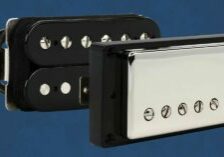Many guitarists will ask about using lemon oil to protect and condition the fretboard on their guitar. Its a polarizing topic. You will get some people that have used it for decades, while others claim its a big mistake that can ruin your guitar.
I feel like the truth is in between. Chances are good that lemon oil would never hurt your guitar and give you a cheap and effective way to both clean and condition the wood. However, it seems quite possible that it could have some negative effects. This all depends on the type of wood and finish.
Key Takeaways
- Lemon oil effectively cleans, conditions, and moisturizes guitar fretboards.
- It contains high levels of limonene, a natural solvent, which breaks down dirt and grime on the fretboard.
- Lemon oil can restore vibrancy to worn and dull fretboards by dissolving dirt and grime and moisturizing the wood.
- However, it should be used with caution as it can dissolve finishes and cause discoloration, especially on lighter woods.
Benefits of Using Lemon Oil on Guitar Fretboards
Lemon oil has been used to condition wood for decades. Many woodworkers prefer to use lemon oil so its only natural that guitarists would consider using it as a primary cleaning and conditioner.
Lemon oil, derived from lemon rinds, contains high levels of limonene, a natural solvent. When applied to the fretboard, lemon oil helps remove dirt and grime, restoring its original shine. It is particularly effective in rejuvenating old and worn fretboards.
However, over time, the solvent in lemon oil can dissolve finishes on certain fretboards and may cause discoloration on lighter woods. Overuse can also lead to a sticky residue.
Cleaning and Conditioning Fretboards With Lemon Oil
Applying a small amount of lemon oil can help clean, condition, and moisturize a fretboard and even improve appearance.
Lemon oil’s moisturizing properties help prevent the fretboard from drying out and cracking. It’s just worth noting that there are other oils that do the same thing.
Risks of Using Lemon Oil on Certain Fretboard Finishes
Certain finishes on fretboards can be dissolved by lemon oil, potentially causing discoloration on lighter woods.
Darker woods, such as rosewood or ebony, tend to be more resistant to the negative effects of lemon oil. However, lighter woods like maple or ash are more susceptible to discoloration. Most maple fretboards are finished with polyurethane or lacquer. So you don’t want or need to put oil on most maple fretboards unless you are certain that your maple fretboard is unfinished.
Avoiding Sticky Residue From Overusing Lemon Oil
Firstly, it’s crucial to apply lemon oil sparingly. It’s the same with any oil. It only takes a very small amount to do the job.
Using too much can lead to an excessive buildup that results in a sticky residue.
Secondly, when applying the oil, make sure to use a soft cloth or brush to distribute it evenly across the fretboard. This ensures that the oil is spread out and absorbed properly, reducing the chances of any residue being left behind.
Lastly, allow the oil to sit on the fretboard for a few minutes before wiping off the excess. This allows the wood to absorb the oil effectively while giving it enough time to penetrate the surface.
Alternatives to Lemon Oil for Fretboard Care
Here’s where I will give you my 2 cents.
I don’t use lemon oil. Here is why. There are many inexpensive oils that are made specifically for guitar fretboards and they are not expensive. I have a bottle that I’ve used on 10-20 guitars the last 5 years and its not even close to running out. I think I spent $10 on it so we are talking about conditioning multiple guitars at about $1-$2 per year.
I use the MusicNomad F-One Oil. It’s well-regarded and works fantastic with no risk of damaging your fretboard.
However, if you are looking for something that is more accessible or might be in your garage, here are some other options to check out mineral oil. Its a non drying oil with toxins removed. Its commonly used to finish breadboard as it’s food safe.
Best Practices for Using Lemon Oil on Guitar Fretboards
When applying lemon oil or any kind of fretboard oil, make sure to use a soft cloth or brush for even distribution.
After applying the oil, let sit for a few minutes to allow it to penetrate the wood and nourish it.
Then use a clean cloth to wipe off any excess oil. This helps to prevent any residue or stickiness on the fretboard.





